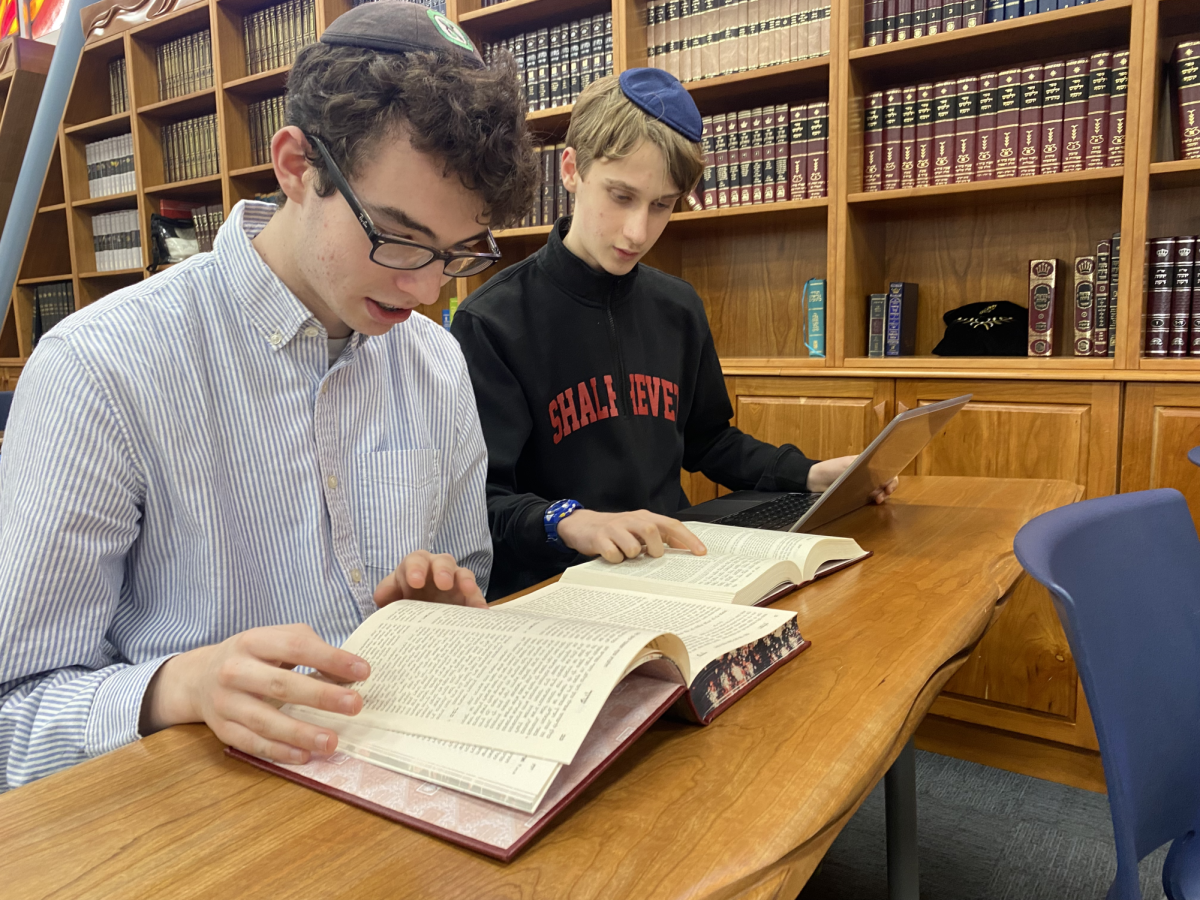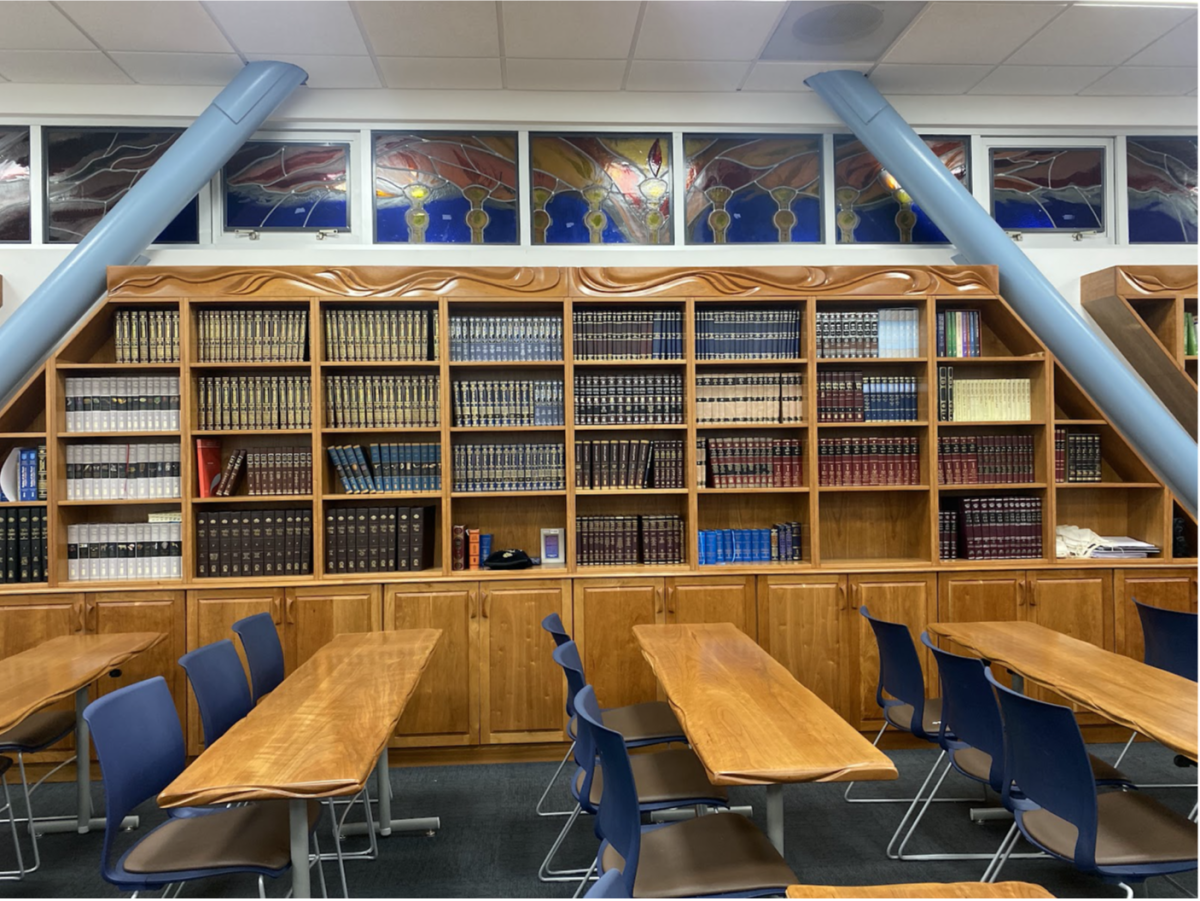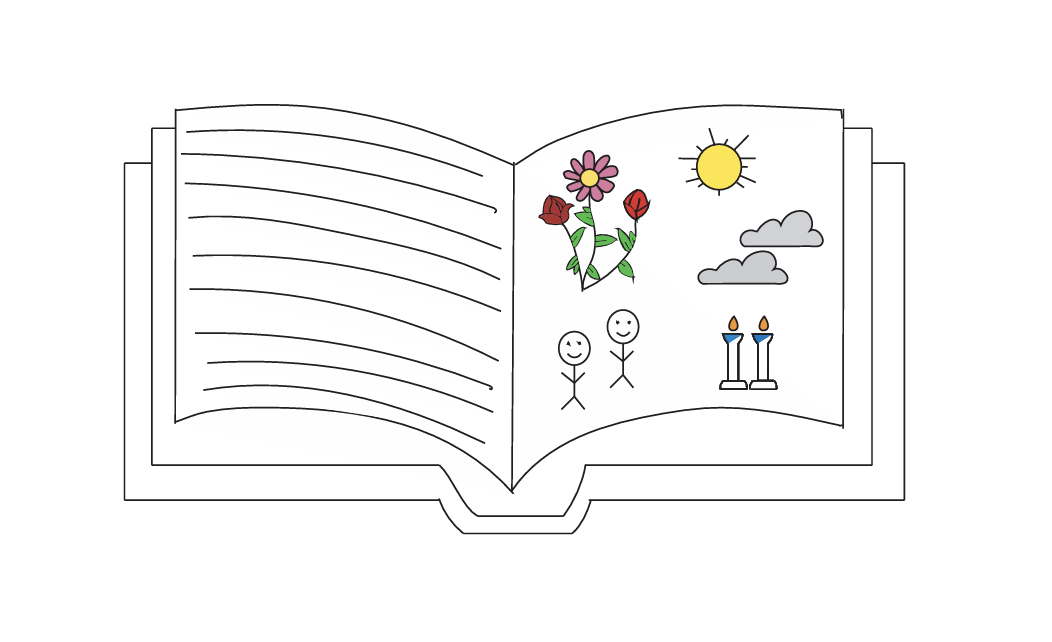In an assembly led by a representative from the American Jewish World Service, students learned in the context of Torah sources how they could improve their volunteering experience using three components of community service: the heart for dedication, the head for understanding, and the hand for action.
“If we don’t put our heart into something, there is no value,” said junior Josh Meisel, who volunteers with Bnei Akiva and is a child-care counselor at Beth Jacob on Shabbat.
Josh said he learned a new way to think about his efforts.
“It’s one thing to have ideas, but the important part is to take action,” he said after the talk. “Be cautious with your actions as well – even though you may be helping someone, you may be hurting someone else. It’s important to think things through but once you know your idea is foolproof, there are no limits.”
The talk was held Nov. 19 during Period 7 and was the first of many community service-related events in the second quarter, all part of a kick-start for students to begin thinking about their own service pursuits during the year.
AJWS is an international organization that sends volunteers, many of them Jewish teenagers, to struggling third-world countries where they work with local villagers to help their communities. But the texts used in the discussion would also apply to projects much closer to home.
Ms. Shulie Eisen, the AJWS representative, introduced the “heart” component of doing community service through the story of Moshe and the burning bush. At first, Moshe was oblivious to God’s presence because his heart was not in the right place, she said. He was not emotionally prepared to see God in such a mundane circumstance and was too amazed by the phenomenon of the burning bush to even realize that God was trying to contact him.
But once he overcame his initial shock, he realized that it was God’s doing. From this, students learned that they need to adopt a certain emotional mindset when doing community service, to connect to the situation on a deeper level.
Ms. Eisen explained the “head” component through a passage in Shemot in which Moshe asks to see God’s glory. However, God replies without fully revealing his nature to Moshe. He says, “I will be gracious to whom I will be gracious, and show mercy on whom I will show mercy.”
During the discussion of the pasuk, students said that sometimes, when doing community service, it is hard for their heads to comprehend the hardships of the people they help. Victims of Hurricane Katrina and other natural disasters far away can seem very distant, though their needs are great.
“Why do bad things happen to good people?” asked junior Haddar Azrad. “Even Moshe, the man closest to God didn’t know. That means it is okay for us not to know.”
The third component of community service, the “hand,” was explained through a d’var Torah on Parshat Vayera written by AJWS’ rabbi-in-residence, Rabbi Brent Chaim Spodek. Rabbi Spodek wrote that Moshe had a knack for acting impulsively to try to seek justice for the weak. When Moshe saw an Egyptian whip a Jew, he killed the Egyptian without giving it a second thought.
But God slowly taught Moshe the value of not only being the hero, but also of learning from the situation. Eventually, Moshe was able to take action to free all of the people of Israel. Similarly, in community service, the hand that reaches out to take action should be combined with a heart that feels and a head that carries out thoughtful planning.
“When you’re making decisions it is important to have all three components to make a helpful one,” added junior Talia Rotenberg during the discussion.
Ms. Eisen also told the students about Volunteer Summer, an AJWS summer program which sends high school and college students to rural villages in Africa, Southeast Asia and Central America, where they develop and maintain village infrastructures. On seven-week summer journeys, they do volunteer work and learn about the benefits of world service and its relationship with Judaism.
“AJWS provides an excellent educational component to any service trip through our curriculum, which helps participants see their experience in a larger global context, and often, a Jewish context,” said Ms. Eisen.
General Studies Principal Mr. Phu Tranchi also spoke at the assembly, and described his service in Rubate, Kenya, where he volunteered for more than two years with the Peace Corps. He taught Physics and Chemistry in the Rubate Secondary School and still keeps in touch with his students and friends he made there, he said.
“Nothing has ever changed me more,” said Mr. Tranchi, adding that he discovered unknown strengths while maturing personally.
Shalhevet students must complete 100 hours of community service by graduation, and students complete these hours in a variety of ways.
Freshman Melissa Ohana plans on volunteering at a local animal rescue center over the next few summers and said she gained new perspectives on pursing community service from the AJWS assembly.
“It showed different ways to help people out and how the smallest thing you do can make another person happy,” she said.






